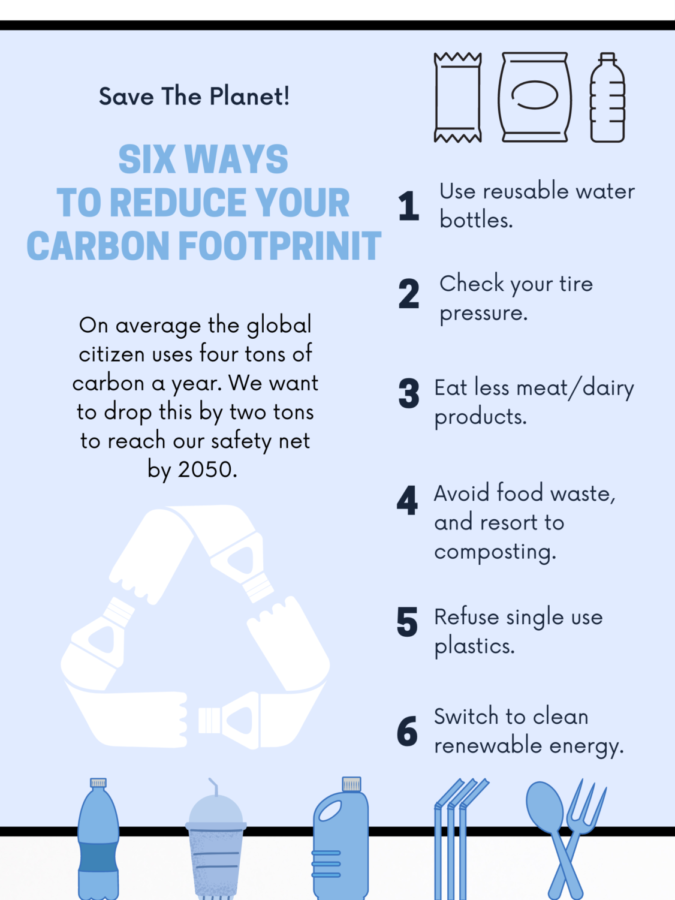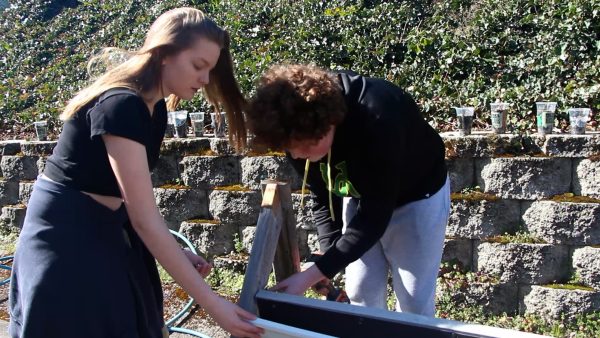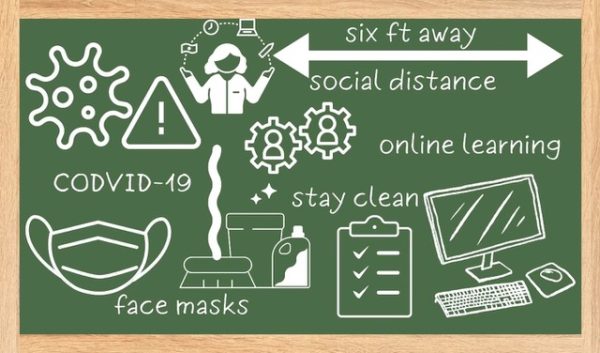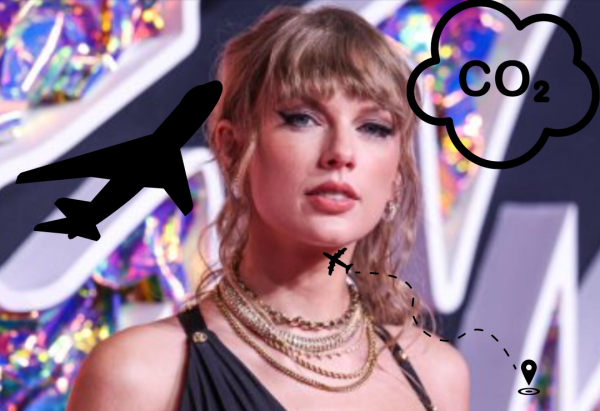Six ways to reduce your carbon footprint
With six simple steps, anybody can reduce their carbon footprint.
Have you ever wondered how you affect the environment around you? Well, a major impact on the environment is your carbon footprint. Your carbon footprint is any action that results in added carbon dioxide to the atmosphere. Anywhere from turning a light on to flying in an airplane uses carbon. This list gives you a few suggestions on ways you could lower how much carbon you use in your daily life.
- Use reusable water bottles: Plastic water bottles are among the most used plastics worldwide. According to the Habits of Waste Organization, “481.6 Billion plastic bottles were used worldwide in a single year.” This is going to be an ever-growing problem with the increasing number of humans living on Earth. Using reusable water bottles can help put a dent in this number. With reusable water bottles, you don’t need a new water bottle every time you drink.
- Check your tire pressure: Rubber tires cause friction on the ground while driving. Tree Huggers states “When tires are not inflated to the pounds per square inch (PSI) rating recommended by manufacturers, they are less “round” and require more energy to begin moving and to maintain speed,” the article said. “As such, under-inflated tires do indeed contribute to pollution and increase fuel costs.” This results in more Co2 being pumped into the air, as well as you spending more money on gas. Constantly checking your tire pressure can save you money and help the environment.
- Eat less meat/dairy products: Each day you may use some sort of meat/dairy products. America has a larger amount of demand for animal products, resulting in an ever-growing need for cows. University of California-Davis’s magazine shares that “Each year, a single cow will belch about 220 pounds of methane, which is shorter-lived than carbon dioxide but 28 times more potent in warming the atmosphere.” Eating less meat means that fewer cows will be raised for our consumption. This also means less methane would be pumped into the atmosphere.
- Avoid food waste by composting: Rather than throwing away your food, change to composting. According to the U.S. Department of Agriculture “In the United States, food waste is estimated at between 30-40% of the food supply.” Composting can help break down these foods and turn the nutrients into healthy fertilizers for crops, and or any plants.
- Refuse single-use plastics: With our growing needs for single-use plastics, Forbes stats show how “Americans generate an average of 105kg (231lbs) of plastic per year.” Often these plastics will find their way into streams, rivers, and oceans. These bright-colored plastics get commonly confused for food, ending up killing birds, fish, and many other aquatic creatures. Avoids using plastics anytime you can.
- Switch to clean renewable energy: Switching to clean renewable energy could be an important step in our future. In 2018 alone, World Resource Institute shared that “101 quadrillion thermal units of energy were used in the [US].” Out of that 81 quadrillion was made up from carbon-based emissions. By switching to renewable energy you will be helping with reducing the use of fossil fuels. Installing solar panels is one of the many ways to use renewable energy.
With many threats of extinction, rising sea levels, and warming average temperatures, it is important that we take care of our planet in order to preserve its overall health for future generations to enjoy. With this information, anyone could take a small step into protecting this world we all love.
Your donation will support the student journalists of West Linn High School. Your contribution will allow us to continue to produce quality content by purchasing equipment, software, and continuing to host our website on School Newspapers Online (SNO).

Owen Stefanich, junior, loves spending time out in nature. Whether it be hiking, nature photography, or just getting out there. He finds himself spending...

























![Game, set, and match. Corbin Atchley, sophomore, high fives Sanam Sidhu, freshman, after a rally with other club members. “I just joined [the club],” Sidhu said. “[I heard about it] on Instagram, they always post about it, I’ve been wanting to come. My parents used to play [net sports] too and they taught us, and then I learned from my brother.”](https://wlhsnow.com/wp-content/uploads/2024/03/MG_7715-2-1200x800.jpg)
![At the bottom of the third inning, the Lions are still scoreless. Rowe stands at home plate, preparing to bat, while Vandenbrink stands off to the side as the next batter up. Despite having the bases loaded, the team was unable to score any runs. “It’s just the beginning of the season. We’re just going to be playing out best by June, [and] that’s where champions are,” Rowe said.](https://wlhsnow.com/wp-content/uploads/2024/03/IMG_3077-1200x900.jpg)





![The teams prepare to start another play with just a few minutes left in the first half. The Lions were in the lead at halftime with a score of 27-0. At half time, the team went back to the locker rooms. “[We ate] orange slices,” Malos said. “[Then] our team came out and got the win.”](https://wlhsnow.com/wp-content/uploads/2023/10/IMG_2385-1200x800.jpg)


















































































